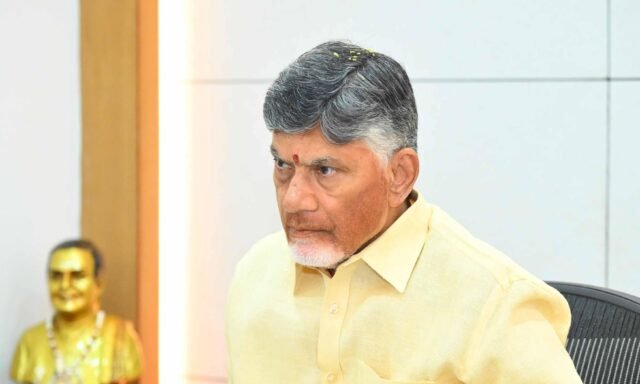Vijayawada: Chief Minister N Chandrababu Naidu has directed the health authorities to analyse the reasons for the spread of the Guillain Barre Syndrome, case by case. Sufficient stocks of injections are ensured in government hospitals, he said.
In a series, some 301 cases had been registered in the state in 2024, and 43 cases have been registered so far this year. Naidu reviewed the situation with Health Minister Satya Kumar Yadav and Health Special Chief Secretary Krishna Babu on Monday.
The 301 GBS cases were registered at 10 of the 17 major government hospitals. The CM sought to know the reasons why the Guntur GH had to register as high as 115 cases — followed by 45 cases in Kakinada and Vijayawada hospitals, 33 in Kurnool, 28 in Visakhapatnam and 21 in Nellore.
Up to eight cases were registered in four government hospitals while no cases came up in the government hospitals in Paderu, Rajahmundry, Eluru, Machilipatnam, Ongole, Nandyal and Anantapur.
Cited reasons, why the Guntur hospital got as many cases, were the presence of a strong neurology department and Neuro ICU there, availability of more Immunoglobulin injections and referrals from the hospitals located in other districts like Godavari.
This year, 43 GBS cases have been reported. Of these, 17 affected patients are undergoing treatment while two have died.
Health Minister Satya Kumar Yadav disclosed the details of the review meeting to the media in the presence of health special CS Krishna Babu. He asked the health authorities to identify the GBS affected patients of last year and the current year to ascertain the reasons for the repeated spread. He also sought a regular review on the incidence and provision of treatment.
“We have a sufficient number of immunoglobulin injections in the state. The incidence of GBS was only one to two per cent per lakh population. There is no cause for panic,” he said.
Of the affected patients, some 25 per cent need not get any treatment. Some 15 per cent cases are serious. “We have placed 789 immunoglobulin infections at government hospitals in Anantapur, Guntur, Kadapa, Kakinada and Visakhapatnam. Some 469 injections were made available in the APMSIDC godowns while 420 injections are kept ready to be sent to the hospitals where such injections are not available.”
He said each injection would cost Rs 20,000. Each patient needs to be given five injections a day for five days. This would cost Rs 1 lakh a day per patient, and Rs 5 lakh for five days. This treatment is not free. It is being provided under the NTR Vaidya Seva as a package costing Rs 1.20 lakh.
The minister noted that private hospitals were referring GBS cases to government hospitals.
HIGHLIGHT
Health special CS Krishna Babu said the symptoms are numbness in the legs and this spreading to the hands, making movement difficult for patients. Those showing such symptoms must rush to a government hospital and ensure their safety.







